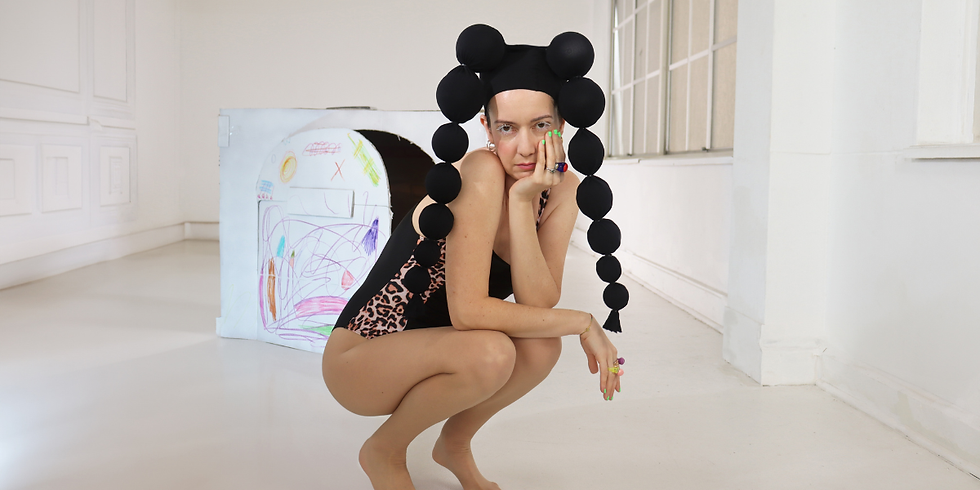Macbeth - Stray Cats Theatre Company
- Kate O'Sullivan
- Jul 25, 2023
- 3 min read
Reviewed by Paul Treasure
Macbeth is one of Shakespeare’s most popular and often performed tragedies, and as such it lends itself to attempts at re-interpretation. Stray Cats Theatre Company’s newest production at the Mandurah Performing Arts Centre has taken the bold move of adapting the play with new material by Georgia Turner. This new material made a valiant effort to renew some life into the piece, albeit with mixed results. Unfortunately, some of the added dialogue came across as trite and ham-fisted, especially Fleance’s bleat of not wanting to be like his father, or the rather painful "Avengers Assemble" moment between the minor thanes. Whereas other changes, such as the insertion of Lady Macduff into the action earlier in the play, the expansion of the role of the doctor, and the often repeated and repeating refrains of the witches came across as clever and insightful, and added to the play.
The set, by Bronwyn White and Karen Francis, consisted of a number of different levels, which greatly added to the flexibility and the blocking of the ensuing action. It did, unfortunately, make it difficult for the set to change into and out of Banquo’s Ghost scene, where a large table had to be negotiated onto the stage. I hate to say it, but if a scene change means that the entire audience can see not only into the backstage area but further into the loading dock of the theatre, you need to rethink that change. The lighting design, by Karen Francis and Justin Crossley, was sufficiently and effectively moody although frequently failed to light the whole action of a scene, sometimes only lighting half of a group of actors talking to each other.
This production chose to open the play, not with the weird sisters, but with a full-pitched battle. It opened the show with an unexpected bang. Choreographer Rhiannon Francis is to be congratulated for all of her work on this show. The large battles were visually interesting and complex. The witches' dances were creepily unnatural, especially the unnerving twitching, and yet at the same time so believably real that it triggered this reviewer's tics.
Alex White, as Macbeth, has a strong and booming voice and it remained strong and booming throughout the play. The only changes in his dynamic were when he felt he needed more emotion and instead gave us more volume. There appeared to have been very little attempt to explore the softer and quieter parts of his voice, even during the quieter and more introspective speeches. Megan Willis, as Lady Macbeth, encountered similar problems, giving us her opening lines at a full intensity that left her nowhere else to go for the rest of the play. Her Lady came across as nothing more than the petulance of a more bloodthirsty teenager. This pattern of declaiming loudly, and if you need more emotion, shout, seemed to infect the majority of the cast. There is an adage in theatre that sometimes less is more, an adage that a lot of the cast would have been wise to heed. A few of the actors managed this: Jessica Nanai as Lady Macduff, Hunter Perry as Malcolm and Royce Newell as Donalbain all gave us periods of thought and introspection, not just rage and bluster.
Special mention must be made of Amy Elliott as Dr Cadel. Of all the actors on stage, she seemed most at home with the language and gave us a fully rounded and believable characterisation. The normally forgettable character of the doctor became a sort of hedge witch wise woman, and we palpably felt her danger as she was called to attend, and then fully realised what was going on around her. It was these scenes with the doctor where Georgia Turner’s adaptation shone the brightest.
The witches, led by Tara Elliott, Teaghan Lowry, and choreographer Rhiannon Francis, were unnervingly otherworldly. I do like productions where the witches spend more time onstage than what is written for them, providing an air of menace and unease. And the choice to give bulk up the number of witches in some scenes made it feel that this is a dangerous world, filled with dangers beyond our knowledge.
Stray Cats are to be commended for attempting such a risky production. Some of the risks paid off beautifully, while others fell way short of the mark. But this is what theatre should be about. Theatre should be about taking risks. Theatre should be about pushing boundaries and testing both the creatives and the audience. And in the end, this reviewer would much rather see a show that sets huge and exciting challenges for themselves and maybe fails to meet them than a bland production that takes absolutely no risks whatsoever.

Reviewer Note: Paul has previously performed at Mandurah Performing Arts Centre. He is a former Independent Theatre Association president. Tickets for this review were provided by the theatre company.






Comments